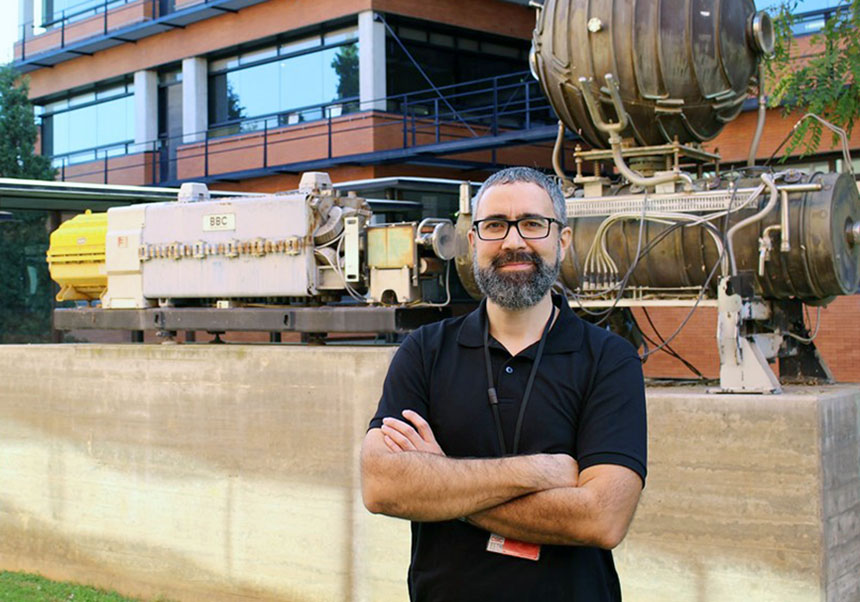Confinement and living habits: how have our routines changed?
- Mètode
- May 27th, 2020

Over the past few weeks, the confinement has changed the routines of the population. But to what extent have our living habits changed? Has our lifestyle improved or worsened after confinement? What impact can these changes have on people's health?
Over the past few weeks, the confinement has changed the routines of the population. But to what extent have our living habits changed? Has our lifestyle improved or worsened after confinement? What impact can these changes have on people's health? Vicent Balanzá Martínez, Professor of Psychiatry at the Universitat de València and member of the Centre for Biomedical Research in the Mental Health Network (CIBERSAM), together with Professor Raquel de Boni, from the Fundaçâo Oswaldo Cruz (FIOCRUZ) in Brazil, and Professor Flavio Kapczinski, from McMaster University in Canada, have asked themselves this question and have launched an international study on healthy living during confinement by COVID-19, with the aim of observing and collecting information on the habits of citizens during the state of alarm. "We think that this information could be a starting point for finding out what the citizenry has done during confinement and to be able to plan for the post-pandemic in the best possible way," says the psychiatrist. This is the first worldwide study on this subject, and it has been carried out through virtual surveys in Spain and Brazil.
Balanzá and his team have designed a questionnaire open to the population that was available from April 15 to May 15. The work tries to analyze people's habits during the time of confinement in relation to what is included in the concept of healthy living. According to the psychiatrist, this project has been carried out with an integral approach to life habits, which until now have been little worked on within the scientific sphere and, normally, in an isolated manner. "Generating the knowledge that this study can offer is a key utility for the citizens, for science and for the health authorities because it can give us an X-ray of what the citizens are doing during this confinement, because we do not know", explains Balanzá. The expert, who believes that this crisis can be an opportunity to advance scientific knowledge, stresses that his objective is to be able to qualify the health recommendations endorsed by the World Health Organization which, despite being “fantastic,” are the same as those made before the pandemic, when we did not have to stay at home.
"Another pandemic related to non-infectious diseases such as diabetes, obesity or depression is on the rise.”
(Vicent Balanzá)
The results of the study may be key to society because, as the author explains, they may serve to improve health recommendations for the future. In addition, the expert assures that it is necessary to plan a promotion of public health and a prevention of the diseases related to the daily habits. As he explains, we are facing another pandemic, related to lifestyle: "After the infectious pandemic produced by COVID-19, we are facing the increase of another one present in our society, which is related to non-infectious diseases such as diabetes, obesity, metabolic syndrome, cardiovascular diseases and depression. These diseases affect the world's population and, in large part, Western countries," he explains. According to forecasts, this non-infectious pandemic, which is related to unhealthy lifestyles, will increase its incidence in the coming months, and Balanzá and his team are studying the links between confinement and the worsening of the population's habits. In this way, it is possible to refine health recommendations and reduce the risk of an increase in non-infectious diseases in the face of future pandemics and seasons of confinement.
Lifestyle
"Before the coronavirus we already had other very important public health problems generated by non-infectious diseases. These have a high incidence in western societies and represent a large health expenditure. And the habits of life have something to do with it. If not causally, they influence its evolution. Thus, if a person takes care of his or her lifestyle, he or she will have more possibilities of improving, even surviving, when going through one of these diseases", says the psychiatrist. So much so that Balanzá explains that living a healthy life reduces all-cause mortality, which is associated with increased survival and life expectancy. Therefore, if during this pandemic and the resulting confinement, healthy living habits change for the worse, as expected in the study's hypothesis, the other pandemic will also worsen. "That is why we consider the information obtained with the study so important," says Balanzá as he advances that it will be available to health authorities in order to improve recommendations to citizens and increase scientific knowledge about their habits.
A particularity of the study is the two-way nature of the survey. Unlike others, each time a block of questions is finished, a series of health recommendations are offered that act as a small self-evaluation, after having answered the questions. On the other hand, the system used does not store any type of data related to the person surveyed, not even the IP address. In addition, Balanzá and his team treat life habits in an integral manner, and incorporate new elements related to healthy living, such as exposure to screens or contact with nature, not contemplated within the classic conception of 'nutrition, physical activity and rest' that is traditionally identified with healthy living.
First changes during confinement
The survey offers four response options to indicate the degree to which the population's habits have changed: totally, moderately, slightly or not at all. As Vicent Balanzá explains, with this data for the moment it is possible to intuit changes but it is not possible to determine if they have been for the better or for the worse. Even so, he does state that the lifestyle of the population surveyed is changing. With the final results of the study it will be possible to calculate a greater or lesser degree of adherence to what is considered a healthy lifestyle, according to the professor.
"We can already sense changes in the habits of the population, but until the end of the study we will not know the degree of adherence to a healthy lifestyle".
During the first ten days of the survey, from 15 to 24 April, 1,546 citizens of the Spanish state, mostly women, participated. In addition, the study was supported by footballers such as Carlos Soler and Jaume Costa of the Valencia Football Club and Toni Lato of the Osasuna Athletic Club. In this initial phase, the results indicate that 70% of the participants claim to have substantially changed (totally or moderately) their physical activity routines during confinement. In terms of emotional management, 34% of the respondents said that they had substantially changed their stress management strategies. The use of harmful substances such as alcohol or tobacco is the least changed area during confinement according to the respondents, with only 9.6% reporting changes. However, as the professor explains, it is important to emphasise that for the time being we are analysing whether or not there have been changes, and later we will see in which direction.
The incorporation of screens into healthy living habits
As Balanzá explains, the biggest change observed in the survey has been related to the question about time spent inside and outside the home. In this case, 94% of the answers indicate substantial changes. The professor states that this data can be related to an increase in the time of exposure to digital devices during the last months, due to the same characteristics of confinement.
"The screens emit blue light, which acts by inhibiting melatonin and delaying sleep, so it is recommended that their use be avoided for two hours before going to sleep.
(Vicent Balanzá)
"The downside of using screens is that interference with sleep has been observed, because they emit blue light, which enters the brain and acts to inhibit melatonin and delay sleep; therefore, it is recommended to avoid the use of devices during the two hours before going to sleep. And so on: "On the other hand, technologies, just like other stimulants such as alcohol, sex or shopping, can be a source of pleasure or become an addiction, everything depends on the use that is made of them". At the same time, he stresses that the current situation is a "double-edged sword," that is, on the one hand it is possible that overexposure to new technologies, especially to content that triggers concern such as fake news, may contribute to an increase in stress, fear or uncertainty among the population. But, on the other hand, a correct and moderate use of new technologies can help to maintain communication in times of confinement.
Reconnect us
"We have to keep our distance physically, not socially," says Balanzá. The psychiatrist believes that being connected through networks during moments of isolation is a tool to reinforce social support. "We have published an editorial in the journal Acta Psychiatrica Scandinavica, called 'Lifestyle behaviors during the COVID-19 - time to connect', where it talks about the importance of strengthening personal bonds through the devices as a method of stress management," he says. According to the professor, chat conversations and calls or video calls offer an opportunity to maintain a social life at a time when it is not advisable to have physical contact with people in our environment. "Confinement can be a time to think about our life, our needs or our goals, but it can also serve to 'reconnect' socially," says Vicent Balanzá. In any case, according to the expert, the virtual relationship does not replace the physical relationship but it can bring us closer to the people we love during this "unthinkable" situation months ago.
File in: Estudis , Recerca, innovació i transferència , Persones















